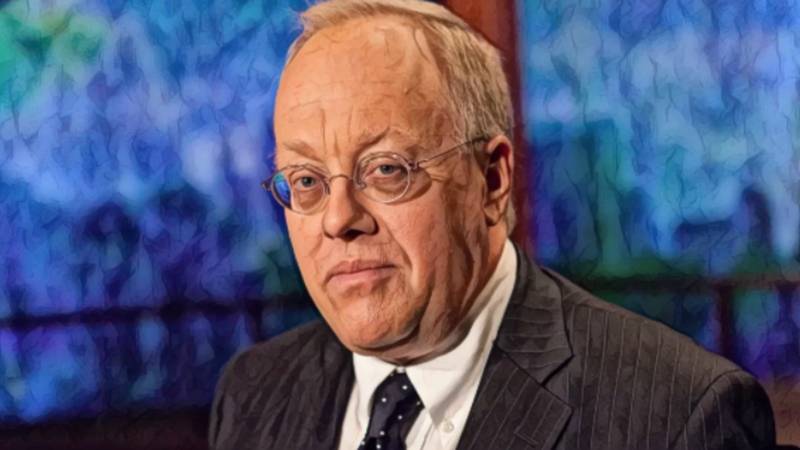
On 6 April, Professor Hatim Bazian of UC Berkeley opened the evening at a Pakistani restaurant, Chandni, in the San Francisco area. He announced his intention to create a Palestine Centre for Public Policy. Then he invited Chris Hedges to the podium.
Hedges told us he had recently returned from a trip to the Middle East. Al Jazeera had flown him to Doha to comment on Gaza. From there, he went to Cairo to join journalists from The Egyptian Press Syndicate who were organizing a protest at Rafah. Unsurprisingly, President Sisi stopped them from going there.
Early on, Hedges was a speechwriter for Ralph Nader. Later, he was offered a position by The Dallas Morning News which required him to be based in Jerusalem. He asked for time to learn Arabic. After he had learned Arabic (which, with Greek and Latin, was now added to his linguistic repertoire), he moved to Jerusalem. Later, he reported for the New York Times, the Christian Science Monitor and NPR. He spent several years in Cairo and Iraq and developed a deep understanding of the region.
While speaking on 6 April, Hedges tore into the American narrative that Israel was fighting a war of self-defence in Gaza. In his view, the crisis did not begin on 7 October, as is often claimed. Palestinians have been deprived of their rights for decades since Israel’s creation in 1948, through which Palestinians lost 78% of the land on which they had lived for centuries. Things went from bad to worse in June 1967 after Israel attacked Egypt, Jordan and Syria, claiming it was a war of self-defence. It seized all of Sinai, including Gaza, the West Bank, and the Golan Heights.
While it returned the Sinai to Egypt after the Camp David Accords in 1978, it did not return Gaza or the West Bank. Palestinians living in those “occupied territories” were denied any civic rights and given just the very basic human rights. Today, armed violence against them by Zionist settlers in the West Bank is common. Any Palestinian regardless of age and gender and profession can be arrested by the Israeli military on the flimsiest of premises. Thousands are illegally incarcerated without any charges being filed against them. Six million people have been living in an open-air prison for 57 years.
Hedges said that the ongoing Israeli onslaught on Gaza would not have been possible without US military and political support. He said Israel wants to annihilate the Palestinians in the same way that the US annihilated Native Americans. Then came the clincher: “All our vaunted morality and respect for human rights is a lie [...] We do not halt Israel’s genocide because we are Israel, infected with white supremacy and intoxicated by our domination of the globe’s wealth and the power to obliterate others.”
The real credo of the American empire was expressed by Thomas Friedman who told Charlie Rose on the eve of America’s invasion of Iraq that American soldiers should go house to house and say to Iraqis, “suck on this.”
He cited many instances in the US where professors and doctors who denounced Israel’s genocide were labeled antisemitic. Some lost their jobs, some lost their funding, and some lost both. Anyone criticizing Israel in the US is considered a Hamas sympathizer.
Hedges also took the US to task for condemning Russia for attacking and occupying Ukraine but looking the other way as Israel continues with its bloody rampage in Gaza. He closed by referring to Aaron Bushnell, an active-duty member of the US Air Force, who immolated himself in Washington, DC in front of the Israeli embassy. Hedges said that Bushnell wanted us to watch him burn to death so we would understand what happens to Palestinians when Israel bombs them to death. Because of Bushnell’s ultimate sacrifice, the suffering of the Palestinians came to our phones and TV screens.
Hedges reminded us that in 1965, after witnessing a 22-year-old activist burning himself to death and reflecting on why so many anti-Vietnam War protests had broken out in the US, Daniel Ellsberg decided to release the Pentagon Papers.
He summed up the feelings of many in the hall when he said that he did not know if his criticism of Israel’s genocide can halt it: “I do not fight fascists because I will win. I fight because they are fascists.”
In the question-and-answer session that followed, he said he would not vote for Biden even if someone put a gun to his head. Lately, in order to court the Muslim and Arab vote in the US, Biden has been talking up his differences with Netanyahu by telling him to be more careful while bombing Gaza and telling him bluntly not to attack Rafah. This has been getting much coverage in the media. But the day after Iran attacked Israel with drones and missiles, in retaliation for Israel’s attack on the Iranian consulate in Damascus, Biden spoke with Netanyahu and reaffirmed “America’s ironclad commitment to the security of Israel.”
I asked Hedges why Arab and Muslim governments more generally were not taking any actions to stop Israel’s onslaught in Gaza. He said they were stooges of the US but there was deep discontent on the Arab street, and it was rising by the day.
I asked if there was a solution to the conflict. He said that a one-state solution is now the only solution: “After the razing of Gaza and seizure of 60 percent of the West Bank by Israel, I don't see how [a two-state solution] is possible. This conflict will not end until the occupation ends.”
He also stated that the Israeli-Palestinian conflict is a symptom of a broader malaise: increasing tensions between the North and the Global South as they battle for resources. He fears that the fascism and white supremacy which are on the rise in the North will become even more dominant as the world battles climate change.

